A major bribery prosecution is taking shape in the law courts in the United States in which Uganda’s Foreign Minister Sam Kutesa is named as a recipient a $500000 (about Shs. 1.8Billion) bribe from executives at a Chinese energy conglomerate.
Authorities in New York last week arrested Patrick Ho, a former Home Secretary of Hong Kong and Cheikh Gadio, a former foreign minister of Senegal, who are accused of bribing Minister Kutesa and President of Chad Idris Debby in exchange for lucrative business opportunities in Chad and Uganda for the Shanghai-based energy and financial conglomerate.
These stand trial in the New York Magistrates Court because they used a New York Bank to carry out the bribery transaction, which is against US laws.
“Their bribes and corrupt acts hurt our economy and undermine confidence in the free marketplace,” said Acting Assistant Attorney General Kenneth A. Blanco in a statement.
Mr Ho, who played a key role in the scheme is the Deputy Chairman of China Energy Fund Committee (CEFC), an NGO fully funded by the Chinese oil and gas conglomerate (which is unnamed in the court documents and only referred to as the Energy Company).
According to the websites of both the NGO and the Energy Company, they share a number of executives including the Chairman, whose identity is also concealed.
On the face of the charges on the Ugandan side of the scheme, is Minister Sam Kutesa who is said to have groomed a relationship with Mr Ho, whilst he served as President of the United Nations General Assembly (PGA) from 2014 to 2015.
The friendship which started in the halls of the UN Offices in New York, flourished rapidly that in few months, Kutesa as UN President appointed the Chinese company chairman as his own ‘Special Honorary Adviser,’ flew to Hongkong to meet him and other company executives, and later introduced them to President Yoweri Museveni as potential investors in Uganda after his UN term expired.
But at the center of this grand scheme is Minister Kuteesa’s wife Jeniffer Nankunda Kutesa, who picked it up later in 2015, directed participated soliciting the bribe from the Energy Company officials and in turn had them invited for President Museveni’s May 2016 swearing-in ceremony. She also introduced the Chinese officials to President Museveni, hosted them at her company offices in Nakasero, helped them in their (failed) attempts to acquire Crane Bank and promised them investment opportunities in Uganda’s energy, aviation and finance sectors.
Genesis
According to a criminal complaint unsealed by U.S. prosecutors yesterday, Sam Kutesa first met with Mr Ho in October 2014, shortly after the former had just been appointed President of the UN General Assembly.
These discussed “a strategic partnership” between Uganda and the Chinese energy company for various business ventures to be formed once Kutesa finished his term at the UN.
During their meetings at his office in New York according to the email exchanges intercepted by the US investigators, Kutesa told Ho that if the Chinese energy company was willing to make long term investments in Uganda’s energy, hydroelectric and financial industries that they were “more than welcome.”
These held a series of meetings in the next months in New York in which Kutesa promised to open more doors for Ho’s NGO (CEFC), into the UN.
In exchange, the Chinese Energy Company was to send $500,000 to Mr Kuteesa. The bribe was to be vailed both as a campaign donation to President Yoweri Museveni (Kuteesa’s brother-in-law) to help him win his fifth term in office, and also as donation to Mr Kutesa’s charity organisation in Uganda.
Before he could leave office, Mr Kuteesa was in March 2015 invited to China to meet with the energy company officials. He went with his wife Nankunda.
On March 17th, Mrs. Kuteesa sent an email to Mr Ho, praising the “quality time” they had in China and highlighting the discussions that they had regarding the energy company’s investment prospects in Uganda.
From here on according to the investigations, Kuteesa’s wife got more involved in the exchanges between Ho, her husband and the Energy Company Chairman.
During the trip to China according to her email to Ho, Mrs Kutesa tried to seek help from the Energy executives in connecting her to another Chinese company, which offers a mobile payment service.
She wanted to discuss with this company, the possibility of franchising their technology in Uganda or find any other arrangement for her company in Kampala to use their system to provide e-ticketing to the city transportation system.
The court documents didn’t provide Mrs Kutesa’s company name, but its description fits MCash or MobiCash, a Nakasero based company.
Chimpreports confirmed that she is the Chief Executive Officer of Mcash.
We were however unable to confirm whether Mrs Kutesa’s company is eyeing the e-ticketing tender on the Kampala Express Highway, which once opened next year, will be Uganda’s first toll road.
UNRA’s communications director Alan Sempebwa told us the bidding process for the ticketing company has not yet commenced.
The US investigators led by FBI Special Agent Thomas McNulty confirmed that during the meeting between Kutesa, his wife and the energy company officials in March 2015, the latter agreed to provide the $500,000 “donation” to President Museveni’s re-election. Interestingly, this money was sent in May 2016, 3 months after President Museveni had won the Presidential elections.
In February 2016, five months after her husband’s term expired at the UN and three months after he resumed office as Uganda’s Foreign Minister, Mrs Kuteesa’s email exchanges with Mr. Ho intensified.
This was the same month that President Museveni was re-elected.
In the emails, she asked for resumption of the talks on the Energy Company’s projects in Uganda.
In a February 18th email, she informed Mr Mo that her husband wanted to “catch up with them particularly on the chairman’s donation pledge to the Kampala charity organization, saying that it was set to be launched.
She then provided wiring instructions to the bank account in Uganda in the name of the purported charity foundation.
An FBI agent this month (November) according to the court papers visited the said foundation’s address in Kampala and found that it was non-existent. The agent says he found a security guard at the address who told him she had never heard of the company.
Museveni Inauguration
In February 2016, Mr Ho informed his chairman in an email that Minister Sam Kuteesa had mentioned the Chinese conglomerate to President Yoweri Museveni, its contribution pledge to his campaign and that they were invited to attend the president’s inauguration ceremony.
He also wrote to Kutesa’s wife requesting that the Chairman is invited as a VIP guest at the inauguration. With reassurances from Mrs Kutesa, on March 17th, the energy company chairman approved payment of the $500000 payment.
The money was sent weeks later on May 6th from the CEFC bank account in Hong Kong, (The NGO employees were ordered to file it under “Other professional fees”) to a bank in Kampala through another bank in New York.
On April 20th 2016, Mrs Kutesa sent the invitations to the inauguration to Mr Ho, along with guidance on the Chinese official’s private scheduled meeting with President Museveni after the event.
The Chinese were to come with a team of investors to meet with Museveni and ready to express their investment interests “in sectors of their choice in Uganda.”
The company officers did travel to Uganda according to the investigations, attended the inauguration event on May 12th, held meetings with President Museveni, Minister Kutesa, officials from the Ministry of Energy and from Bank of Uganda.
The delegation of 8 officials also brought with them unnamed gifts for President Museveni and Minister Kutesa which required shipping assistance from Ugandan Customs officials.
Evidence of this was in another email which had photo attachments of the said meetings.
“One photograph for example showed Mr Ho and others examining a map of Ugandan oil fields,” the investigators told court.
During their trip in Uganda, the Chinese officials expressed interest in a number of projects including infrastructure, agriculture and building an airport.
They also hinted on have controlling shares in a certain Ugandan commercial bank.
Crane Bank
According to the complaint before New York Magistrate Kevin Fox, Mrs Kutesa made attempts to interest the Chinese conglomerate in acquiring a bank in Uganda, — whose description by the court documents fits Crane Bank, — shortly before it was placed under receivership by Bank of Uganda in October 2016 and later sold to DFCU.
In her email correspondences with the Chinese, Mrs Kutesa went as far as creating linkages between the conglomerate and officials at Bank of Uganda, particularly the Deputy Governor Louis Kasekende.
She even offered to guide the Chinese through the “very confidential and urgent process of acquiring the bank” writing, “as you know, selling a bank is a very confidential and urgent process.”
This was the time that financial problems at Sudhir Ruparelia’s Crane Bank were rapidly becoming public.
As a matter of urgency, she wrote to Mr Ho advising him to write to Bank of Uganda’s Deputy Governor expressing interest in purchasing the bank before close of business that day (October 13th).
On the same day, an employee from the energy company wrote to Mr Kasekende and the letter was copied to Mrs Kutesa.
It is unclear what went wrong afterwards but the Chinese Company was eventually unable to acquire Crane Bank.
The bank was placed under receivership by the Central Bank on October 20th 2016. Four days later Kutesa’s wife wrote to Mr Ho complaining that he had not picked her calls and urged him to swiftly contact Mr Kasekende on his mobile.
The following day, Bank of Uganda wrote to Ho asking whether or not they were still interested in the acquisition. Ho forwarded this email to the company chairman by there was no response.
Weeks later on January 27th Crane Bank was finally bought by DFCU Bank.
Our efforts to reach Mr Kasekende were fruitless. However, a high ranking official at the Central Bank who asked to remain anonymous confirmed the correspondences with the Chinese.
The source stressed however that the fact that Crane Bank was eventually acquired by DFCU was evidence that Bank of Uganda was committed to following due process.
“It clearly shows that Central Bank couldn’t be compromised and managed to sell the bank to one entity other than the one allegedly preferred by ‘the power’ that be,” the source observed.
ChimpReports was yesterday unable to obtain a comment from Minister Kutesa whom a Foreign Affairs official said was on a plane travelling to Hungary.
Our efforts to reach Mrs Ketesa were also futile as we were told by her employees that she wasn’t in office and that they couldn’t put us in touch with her.
via: Campus Juice
More
411 UG brings you all the latest News and Ugandan Music. Browse Featured News, Entertainment, Current Affairs, Technology, Interviews, Relationships and much more.






















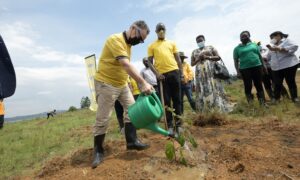







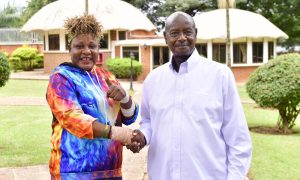

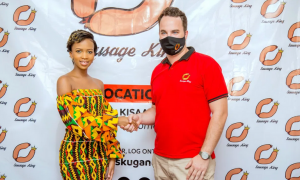



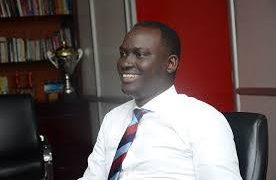

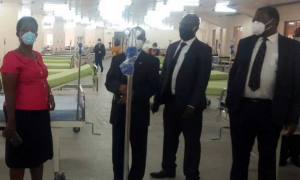









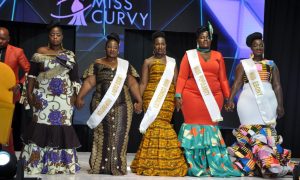






Share this post: